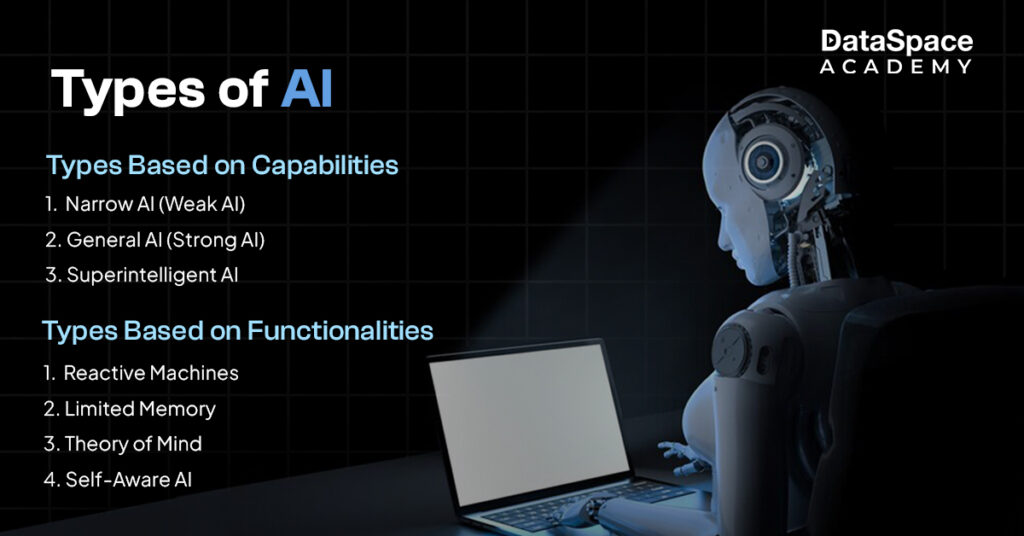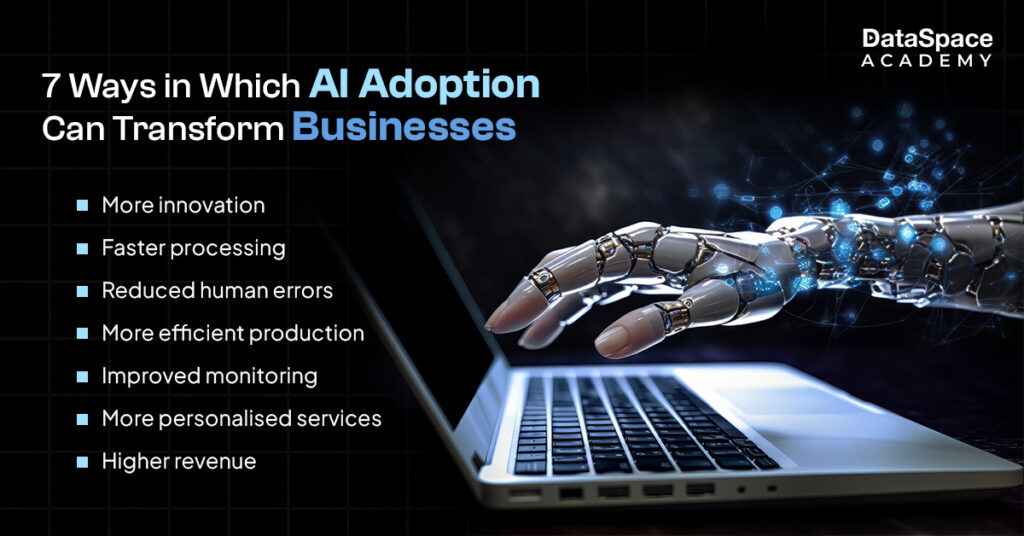Artificial Intelligence (AI) has evolved from a futuristic concept into a crucial element of our everyday lives. From personalised recommendations on streaming services to advanced medical diagnostics, AI's applications are now vast and varied. This blog delves into the
types of artificial intelligence, their use cases, and also, the future of the technology. We'll also touch on ethical considerations, ensuring a comprehensive overview of this rapidly evolving field.
Artificial Intelligence involves creating machines that simulate human intelligence, enabling them to think and learn similarly to humans. This broad field encompasses various technologies and methodologies, each contributing to the development of intelligent systems. The primary goal of AI is to create systems that can perform tasks typically requiring human intelligence but faster and more efficiently- such as problem-solving, decision-making, and natural language processing.

Here is a list of the
different types of AI, based on capabilities and functionalities:
AI's versatility allows it to be applied across various sectors, revolutionising industries and enhancing efficiency.

Generative AI, a subset of AI focused on creating new content, has its own set of use cases:
As AI draws in extensive adoption, ethical considerations become increasingly crucial regarding the implementation of this cutting-edge technology. Key issues that must come under consideration include:
The
future of Artificial Intelligence holds immense potential, promising more innovation and efficiency. If we talk about industries-
future of ai in education, healthcare, cybersecurity, data science, supply chain, finance, and marketing- is remarkably bright. Overall, the state-of-the-art technology is projected to make things faster, almost flawless, more innovative, and more efficient.
However, in the midst of accelerating adoption of AI, the ethical considerations should also be respected to ensure responsible adoption.
Artificial Intelligence is a powerful force that is revolutionising industries and amplifying our abilities. Understanding the different types of AI and their use cases helps us appreciate the potential and challenges ahead. As we navigate the future, ethical considerations and a focus on responsible AI development will be crucial in harnessing AI's full potential. Whether in healthcare, finance, or education, AI promises to be a key driver of innovation and progress. Earning a
machine learning certification can provide the knowledge and skills needed to leverage AI effectively in these fields.

 Here is a list of the different types of AI, based on capabilities and functionalities:
Here is a list of the different types of AI, based on capabilities and functionalities:

